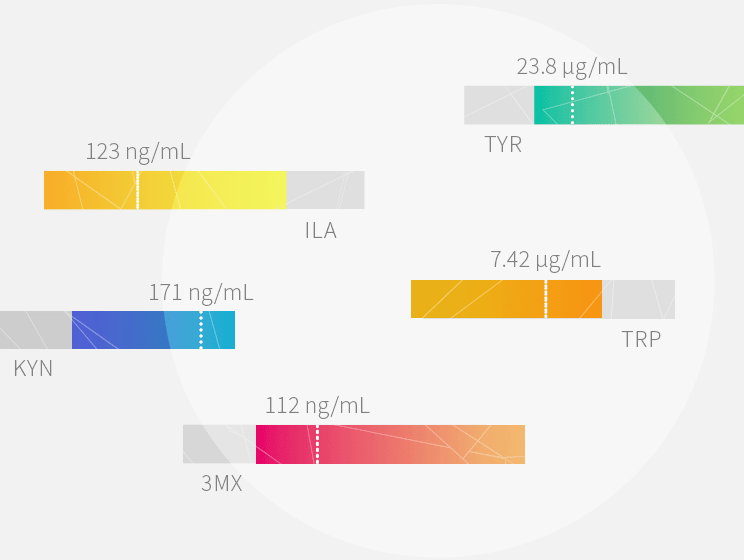
11 Metabolites and Your Health
Metabolites are small molecules produced and used by the body when it breaks down food, drugs, chemicals, or tissue. The 11 metabolites Ixcela measures were chosen from thousands for their significance in gut microbiome health and diversity, particularly in relation to health risks and whole-body wellness. They indicate if there’s an imbalance of microbes, show how well you’re processing and absorbing nutrients, and reflect your body’s response to external factors like stress. Our research has shown that improving the levels of these 11 metabolites directly improves your Internal Fitness.


